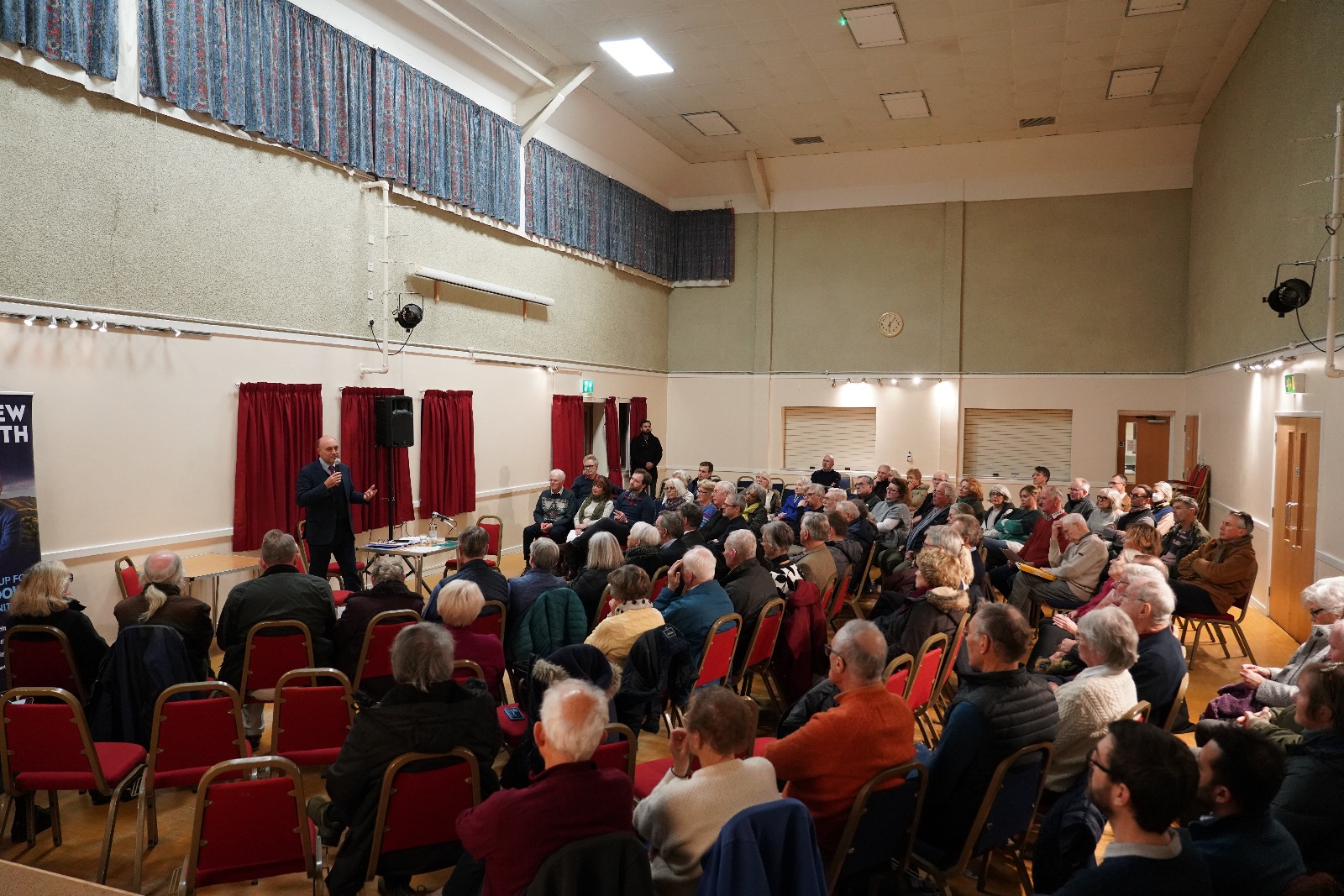Updated - Friday 29th November
We debated and voted on the Assisted Dying of Terminally Ill Adults Bill in the House of Commons today.
The debate was emotive with powerful speeches from Members across the House. I was in Parliament to hear the debate in person. Many speakers recounted personal stories of end-of-life moments as well as the experiences and views of their constituents and of medical and legal professionals.
Over the last few months, I have fully engaged in correspondence with thousands of constituents, conducted a dedicated local survey and held my own well-attended meeting which any constituent who wished to could have attended. In short, I have listened diligently and made up my mind only after a thorough process.

The upshot is that whilst trying to remain open minded on the principle, I was convinced that this Bill was rushed in its drafting, has been afforded too little Parliamentary time for real scrutiny or to amend and it has too many deficiencies even to achieve its own objectives. When changing the law, it is right to apply the precautionary principle and to put the burden of proof on those seeking to make the change. For these reasons my vote today was against the Bill.
I fully sympathise with those who wish to see a change in the law, especially to provide relief from suffering that no palliative care can entirely eliminate. However, on something of such great magnitude I looked for the most rigorous safeguards and narrowly defined use cases. The legislation presented to the House for debate contained only limited safeguards, and those it does contain have been found by many experts to be severely lacking.
The legislation asked for each case to be overseen by the High Court. However, it does not even specify which division of the High Court should be assessing these cases. Leading members of the judiciary, including the former president of the Family Division, have highlighted that if it is limited to the Family Division, where only 19 judges currently sit, it will result in a large backlog and significant delays in a system that is already under significant pressure.
Moreover, the Bill does not mandate that any legal hearings be conducted in person, and leaves open the likelihood that most are decided remotely as a paper exercise with no actual investigation as to whether there may have been coercion or suggestion. A decision and then the subsequent death itself could be conducted without any next of kin or close relatives being informed. The issue of coercion is one I give great weight to, and it seems to me entirely probable that if this Bill passed, we would see some cases where at best individuals felt their death was ‘relieving loved ones of a burden’.
Many of the arguments in favour of the Bill, seemed to me to overlap significantly with legal issues around end-of-life care pathways and access to palliative care. I have heard many heart-rending cases about end-of-life experiences but many upon close investigation were failings of compliance with existing procedures which this Bill would not have helped with. I have learned for example that, post-Shipman, there would be benefit to all for better legal and medical clarity around the administration of pain relief. I hope that this now happens.
On palliative care, it is common ground in today’s debate that it would benefit from greater and more certain forms of funding. I strongly support this much as I also support the Dilnot reforms on long term care. The fact that palliative care is often delivered outside of the NHS is a strength: hospices and charity nurses seem to find it easier to deliver genuinely patient centric care at these moments than the busy and NHS might be able to. There is no reason why much greater public funding could not follow the patient, thus preserving the independence of the sector and choice for the patient and their family. In terms of funding, I would rather that the government properly fund palliative care for all than some other areas of public spending. There are choices to be made.
Finally, the rushed timetable of this significant legislation did not give Parliament sufficient time to debate something of such magnitude. As a private members bill, it was allocated only five hours to consider. In today’s debate alone more than 160 Members of Parliament sought to speak, and many others would have liked to but recognised there was little chance of being called. For a piece of legislation that changes the entire approach of the legal system and the NHS this in my view was wholly insufficient. No impact assessment has been conducted to reveal the impact on our courts and GP’s and identify the practical challenges to be overcome. Notably the current Health Secretary, Wes Streeting, who is well placed to assess the impact upon the NHS, has been vocal in his opposition. It would also be wrong to ignore the fact that so many newly elected MPs voting have barely weeks of experience in how Parliament works and the proper legislative process. It would be far better for the advocates of this Bill to come back in a future session and for the government to have allocated proper time for Parliament to do its job properly.
I’d like to thank every constituent who has contacted me on this issue and who attended my consultation. Whether or not they agree with my ultimate position, I hope all feel that I engaged properly, and that all were given their chance to have their say and to be heard respectfully.
Andrew